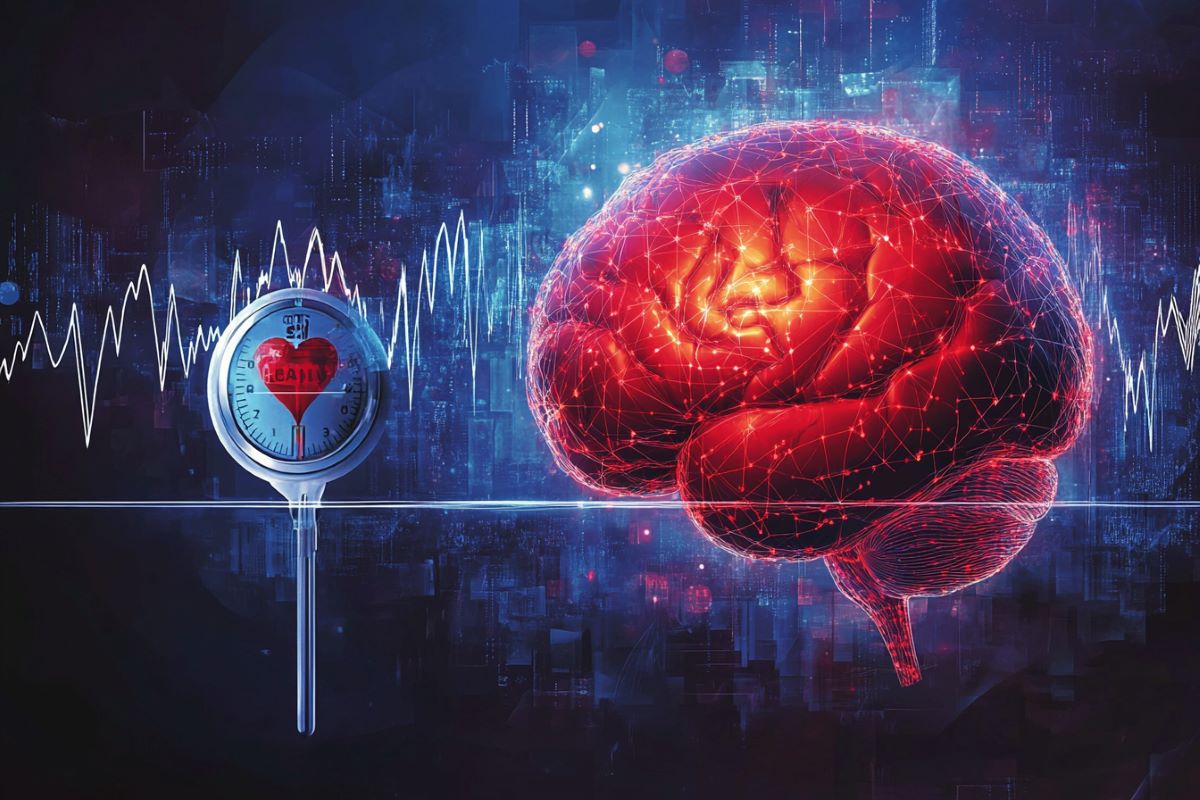How long before your competent? stroke doctor writes up and implements a testing protocol for this AND creates a protocol to reduce levels safely?
The research is incomplete; what is the definition of high? Your mentors and senior researchers were TOTALLY INCOMPETENT in instructing you how to conduct research?
High Blood Sugar Impacts Brain Health, Even Without Diabetes
Summary: New research reveals that elevated blood sugar levels may harm brain health, even in people without diabetes. The study showed decreased connectivity in brain networks linked to cognition, memory, and emotion regulation, with stronger effects in older adults and women.
Elevated blood sugar was also tied to lower heart rate variability, an indicator of brain health. These findings underscore the importance of managing blood sugar through a healthy diet, regular exercise, and medical checkups to support both body and brain health.
Key Facts:
- High blood sugar reduces connectivity in brain networks critical for cognition.
- Older adults and women showed stronger effects from elevated blood sugar.
- Low heart rate variability, linked to brain health, correlated with higher blood sugar.
Source: Baycrest
A study by Baycrest found that high blood sugar may impair brain health even in people without diabetes.
While the link between blood sugar and brain health is well documented in individuals living with diabetes, Baycrest is the first to examine this connection in people without this diagnosis.

“Our results show that even if someone does not have a diabetes diagnosis, their blood sugar may already be high enough to be negatively impacting their brain health,” said Dr. Jean Chen, senior author on the study and Senior Scientist at the Rotman Research Institute, part of the Baycrest Academy for Research and Education (BARE).
“Blood sugar exists on a spectrum – it isn’t a black and white categorization of healthy or unhealthy.”
The study, titled “The associations among glycemic control, heart variability, and autonomic brain function in healthy individuals: Age- and sex-related differences,” was recently published in the journal Neurobiology of Aging and examined 146 healthy adults aged 18 and older.
For each individual, researchers analyzed blood sugar, brain activity using magnetic resonance imaging (MRI) scans and heart rate variability through electrocardiogram (ECG) readings.
“The findings highlight the importance of managing your blood sugar through healthy diet and exercise, not only for your body but also for your brain,” said Dr. Chen, who is also Baycrest’s Canada Research Chair in Neuroimaging of Aging and Professor of Biomedical Physics at the University of Toronto.
“It’s also important to get regular checkups and to work with a healthcare provider, especially if you have been diagnosed with pre-diabetes.
Main study findings
- Higher blood sugar was associated with decreased connection in brain networks. These networks play a crucial role in all aspects of cognition including memory, attention and emotion regulation.
- The effect was stronger in older adults, but it was present across all ages; older adults generally had higher blood sugar than younger adults.
- The effect was also stronger in women than in men.
- In addition, there was a link between higher blood sugar and lower heart rate variability – that is, the beat-to-beat change in an individual’s heart rate. Previous research indicates that higher heart-rate variability is associated with better brain health.
In future work, the researchers could further investigate how to improve brain function by changing heart-rate variability, which is an easier target for intervention than blood sugar, especially in non-diabetic individuals.
Funding: This study was conducted using data from the Leipzig Study for Mind-Body-Emotion Interactions (LEMON) dataset. It was funded by the Canadian Institutes of Health Research and the Natural Sciences and Engineering Research Council of Canada.
About this brain health research news
Author: Natasha Nacevski-Laird
Source: Baycrest
Contact: Natasha Nacevski-Laird – Baycrest
Image: The image is credited to Neuroscience News
Original Research: Open access.
“The
associations among glycemic control, heart variability, and autonomic
brain function in healthy individuals: Age- and sex-related differences” by Jean Chen et al. Neurobiology of Aging
No comments:
Post a Comment